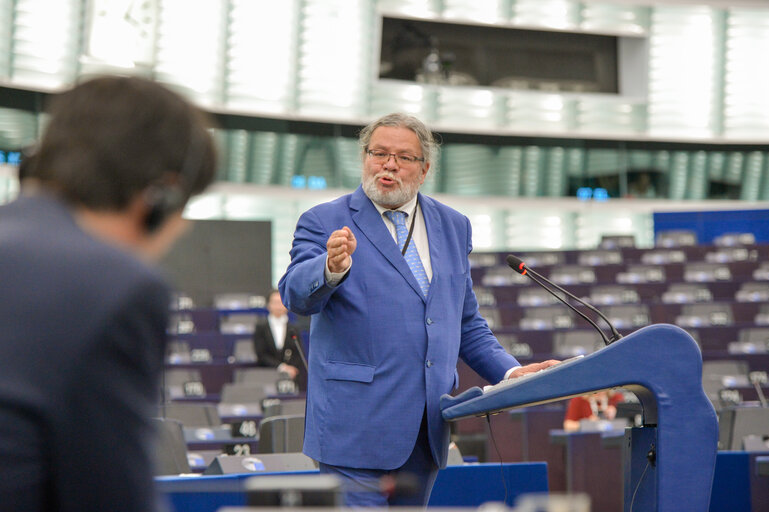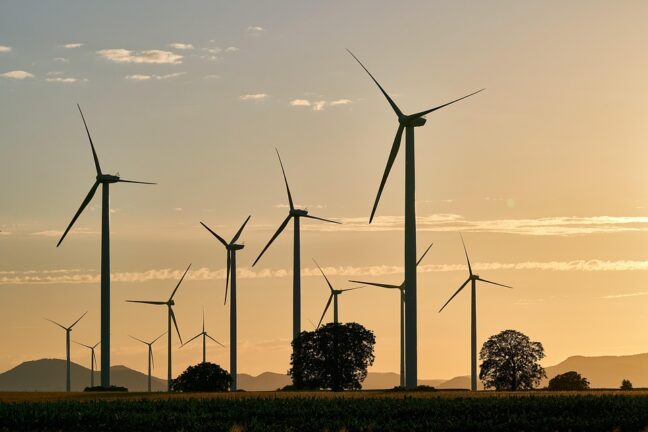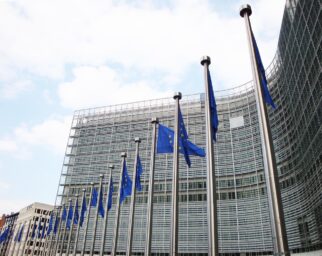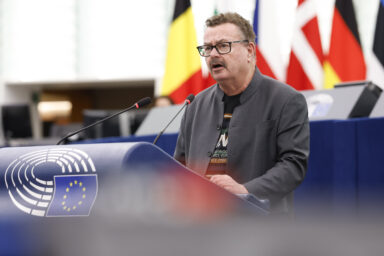Heated debate in the European Parliament on Tuesday, 9 July preceeded Wednesday’s voting on the revision of the European Climate Law. Some MEPs criticized the EU 2040 Climate Target proposed recently by the Commission as unrealistic and ideologically biased.
Tuesday’s session opened with remarks by Wopke Hoekstra (NL), Commissioner for Climate, Net Zero and Clean Growth. He admitted that the proposed revision is a sensitive one, also in political sense, but highly important.
“Decarbonization is the core of European policy, the core of our future growth,” said Hoekstra and defended the EU 2040 target that the Commission presented on 2 July. The target includes reduction of the EU’s net greenhouse gas emissions by 90 per cent until 2040, relative to 1990.
Decarbonization is the core of European policy, the core of our future growth – Wopke Hoekstra (NL), Commissioner for Climate
Mr Hoekstra also explained why the so-called flexibilities—drawing criticism as controversial—are in necessary, in the Commission’s eyes. “There is only one planet (…) It does not make any difference whether (carbon) reduction takes place in the EU or elsewhere,” the Commissioner defended the inclusion of the so-called carbon offsets in the 2040 target. These are supposed, however, to be subject to a maximum cap of three per cent of the total carbon reduction.
“Steel from China or Turkey”
Several MEPs, especially those from the Patriots for Europe and European Conservatives and Reformists (ECR), criticized the Commission’s proposal. MEP Silvia Sardone (PfE/IT) called the Commission’s draft “ideologically biased and unrealistic (…) proposal that leads towards a future without economic growth, future of poverty”.

More fierce criticism came from MEP Alexandr Vondra (ECR/CZE) who said that “…the Commission’s proposal is false from the beginning to the end. (…) The 2040 target is impossible to reach and will result in liquidation of European industry including defence sector. Where shall we buy steel needed for new tanks, for ammunition? In China? In Turkey?” asked Mr Vondra.
Way to 2050 net zero
The European Climate Law entered into force on 29 July 2021. It sets a legally binding target of net zero greenhouse gas (GHG) emissions by 2050. EU institutions and the member states are bound to take the necessary measures at EU and national level to meet the target.
Europe’s Climate Law includes intermediate steps like 2030 climate target of reducing net GHG emissions by at least 55 per cent compared to 1990 levels, and also 2040 climate target. The Commission proposed the latter on 2 July 2025.
You might be interested
The Commission’s proposal, setting a 2040 climate target, is now on its way to the European Parliament and the Council for discussion and adoption under the ordinary legislative procedure.
Buildings and transport issues
In 2023, for the first time, the Commission assessed progress towards the climate neutrality and adaptation objectives, as the Climate Law requires it. It published the findings as part of the 2023 Climate Action Progress Report.
Although greenhouse gas emissions continue to fall, the Commission’s assessment is that current progress towards the EU’s climate neutrality objective appears to be insufficient. Action is most needed in areas which still require significant reductions in emissions (e.g. buildings, transport), where progress is too slow (e.g. agriculture), or where, in recent years, there has been a deteriorating trend, as is the case for the carbon sink (e.g. land use, land-use change, and forestry).











